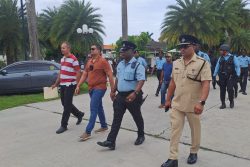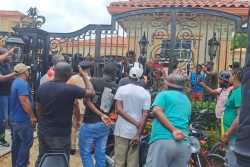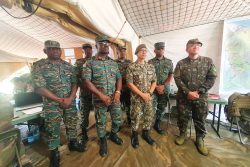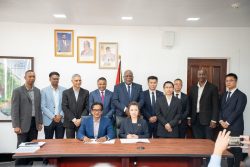(Reuters) – The whistleblowers who sparked an investigation that found widespread doping in Russia received financial assistance, said the World Anti-Doping Agency (WADA) on Friday, while hitting back at criticism it waited years to react on evidence.
Vitaly Stepanov, a former-Russian Anti-Doping Agency (RUSADA) official and his wife Yulia Stepanova, an 800-metre runner who was herself caught doping, have been in hiding in the United States since providing key information for a German TV documentary which made claims of rampant doping in Russian athletics.
WADA would not say what kind of compensation or how much was provided to the Russian couple, who are believed to be awaiting permits that will allow them to work in the U.S.
The programme on German network ARD that sent the Stepanovs into hiding prompted an independent commission led by former-WADA president Dick Pound that led to Russia being banned from all athletics competition.
Ever since the revelations late last year WADA has been stung by criticism that it dragged its feet for years before telling Stepanov to take his evidence to reporters.
Olivier Niggli, who will take over as WADA director general later this month, forcefully hit back at that criticism on Friday explaining the top priority was to protect the Stepanovs, who were in fear for their lives and that the anti-doping agency was being prudent rather than slow.
Stepanov had said that starting in 2010 he had sent hundreds of emails to WADA detailing doping in Russia and had nearly given up hope.
Last month Stepanov told Reuters he second-guessed himself countless times during a three-year stretch where information he fed to WADA did not lead to action.
“That is what we have to make clear it is not like in 2010 WADA got a whole packet of information and just sat on it for all that time,” Niggli told Reuters. “He was giving us the big picture.
“He was saying I will stay in touch I will try to get more information which is what he did over time.
“This has been a process. We had the first meeting with Mr. Stepanov in Vancouver in 2010 and it was followed by two emails that year.”
Niggli said that initial contact was followed by more discussion and another meeting in 2011 and the same in 2012 but it wasn’t until 2013 when Yulia was caught for doping that the Stepanovs decided to get serious about delivering WADA the information it was asking for.
“It was really only in 2013 when he and his wife started talking to each other about what was going on that they were saying we will try to get more evidence and do the right thing,” said Niggli.
“In 2013 they said, ok now we are ready to gather more evidence because we all agreed that is what was needed.”
However, even when the Stepanovs had brought enough credible evidence to WADA’s attention the agency found its hands tied with no provision in the Code at that time allowing it to launch an investigation.
Fearing for the Stepanovs safety, WADA was reluctant to even bring the information to the attention of its own board with Russian members sitting at the table.
“We could not get more evidence on our own and passing it onto the Russians was not an option,” said Niggli. “We were prudent, we were very careful about moving forward at a pace, that now might seem too slow.
“Our first preoccupation was that this young man trying to do the right thing would not be harmed. We would not do anything until we would be sure he was in a place that would be safe.”
WADA introduced a new whistleblower policy at last month’s foundation board meeting in an effort to encourage people with knowledge of doping to share their information.
“We are strengthening the programme so as to encourage more athletes, support personnel and others to come forward with valuable information/intelligence,” WADA said.









